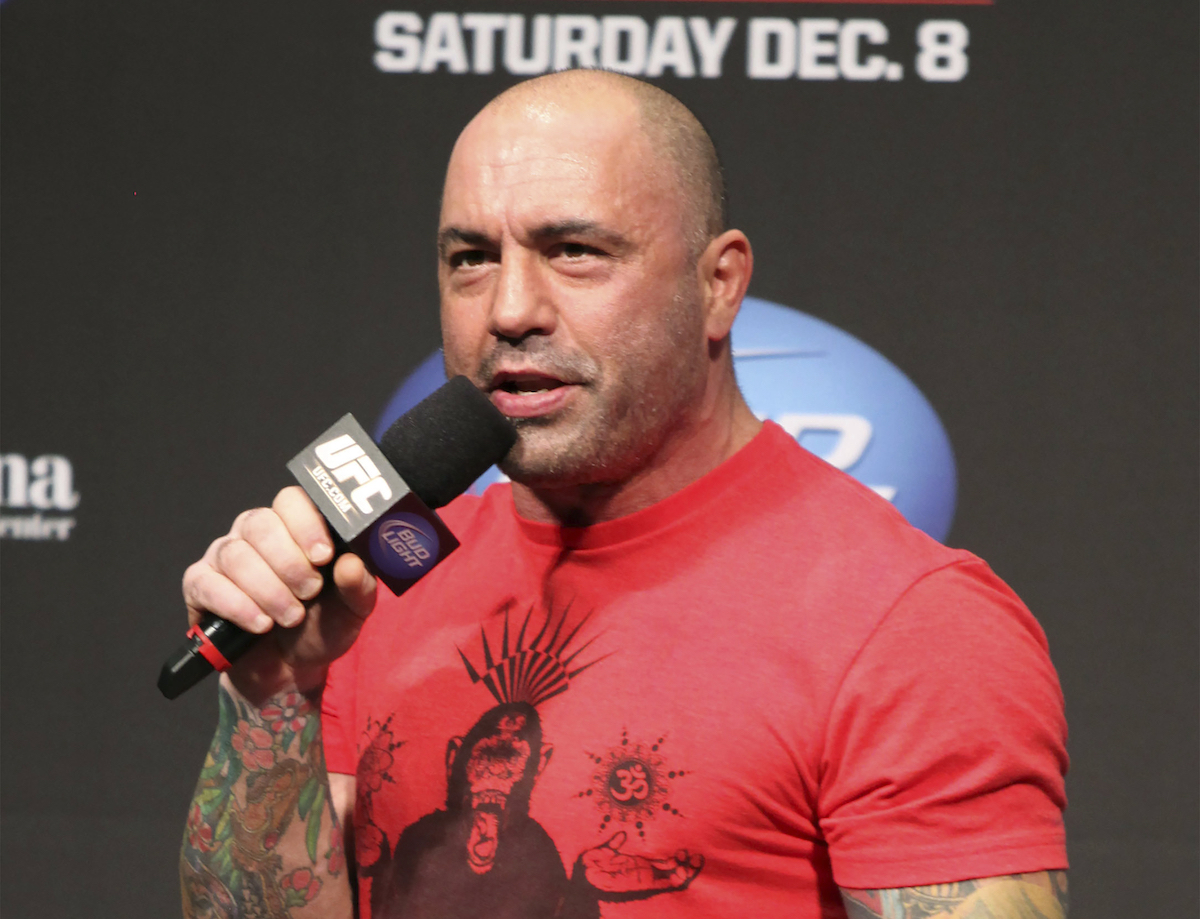The Joe Rogan Experience is one of the world’s most popular podcasts and, for the past two weeks, the world’s most controversial. Launched in 2009 by comedian and martial arts enthusiast Joe Rogan, the show was originally recorded in his home and is known for its meandering interviews, sometimes surpassing three hours in length, with comedians, athletes, businessmen, conspiracy theorists, journalists, musicians, fringe political figures, magicians, and doctors. Over the show’s more than 1,700 episodes, it has covered a dazzling array of topics with guests of wide ranging backgrounds, expertise, experience, and credibility.
Joe Rogan has successfully reinvented the variety show for the digital age with all the promise and peril of the internet included. Having built an audience of millions, he reached an exclusive licensing deal worth $100 million with the Swedish audio streaming company Spotify. Spotify built its business on streaming music but has invested heavily in podcasts in recent years, seeking to become, in the words of its CEO, Daniel Ek, “the global audio platform.”
Two weeks ago Canadian American rock music legend Neil Young set that goal back, serving as a catalyst for waves of criticism of the podcaster.
Young posted an open letter demanding his music be removed from Spotify, alleging that, by distributing The Joe Rogan Experience, “Spotify is spreading fake information about vaccines—potentially causing death to those who believe the disinformation being spread by them,” adding, “They can have Rogan or Young. Not both.” Young was soon joined by Canadian singer-songwriter Joni Mitchell and several other musicians who made similar requests. Brené Brown, an American social work researcher and author, has also announced that she has paused the releases of her Spotify-exclusive podcasts “until further notice.”
The allegations in Young’s letter mirror complaints about The Joe Rogan Experience in an open letter released December 31 by a number of doctors, scientists, and healthcare professionals about an episode in which Joe Rogan interviewed Robert Malone. Malone is an American physician and biochemist who performed early research on mRNA technology and whose views on COVID-19 vaccines and treatments are out of the mainstream scientific and medical consensus.
Spotify has since committed to adding disclaimers to any content it distributed about COVID-19 that may contradict that consensus but has otherwise stood by Rogan. This has not satisfied critics to whose number, since last week, has been added the White House. When asked about the controversy, White House press secretary Jen Psaki noted the disclaimer was “a positive step, but we want every platform to continue doing more to call out misinformation and disinformation while also uplifting accurate information.”
All this criticism may be warranted; however, there is an unexamined assumption behind much of it that warrants closer scrutiny: that vaccine hesitancy, as well as distrust of the medical and scientific consensus, is itself the product of misinformation and disinformation.
It is an unfortunate fact that there has always been a substantial minority of Americans that simply distrust medicine in general. This distrust is not related in any particular way to the COVID-19 pandemic and can be readily demonstrated in the common neglect of annual physicals or flu vaccinations. It may manifest itself in more idiosyncratic ways, such as a commitment to faith healing or “natural” and “alternative” medicine.
There is also the fact that the rapid development of COVID-19 vaccines and the streamlining of approval of those vaccines has made many uneasy. It is a strange paradox that faith in regulatory procedures has undermined faith in public health officials. Kamala Harris infamously voiced skepticism that vaccine development and approval would be rushed and politicized by the Trump administration. Similar criticisms have been made of the Biden administration regarding the approval of boosters.
The expectations of many Americans that the vaccines would bring a rapid end to the pandemic have also been frustrated. President Joe Biden offered Americans a choice upon widespread availability of vaccines: “The rule is now simple: get vaccinated or wear a mask until you do.” Today’s medical and scientific consensus is more complicated than what was originally promised.
What if the contrary opinions so often showcased on The Joe Rogen Experience are not so much changing the beliefs of its audience but reflecting them? Martin Gurri, a former CIA analyst specializing in the relationship of politics and global media, has made the case that, “contrary to settled assumptions, the media mostly reinforces existing beliefs rather than changing them.” If this is the case, Joe Rogen is fundamentally not the problem but rather the great digital wave that has democratized media.
Since Neil Young first wrote his open letter, another scandal has emerged: Rogan’s use of racial slurs in early episodes of The Joe Rogan Experience. American singer-songwriter India Arie retweeted a video montage of the slurs and requested her music be pulled from Spotify in response. Rogan has apologized and has with Spotify removed these early episodes. Spotify’s CEO has, while condemning the language, stated, “I do not believe that silencing Joe is the answer.”
Ek may very well be correct: The fault is not in Joe Rogan but our increasingly democratized media landscape that only reflects ourselves.
This article originally appeared in The Detroit News on Feb. 10, 2022.

